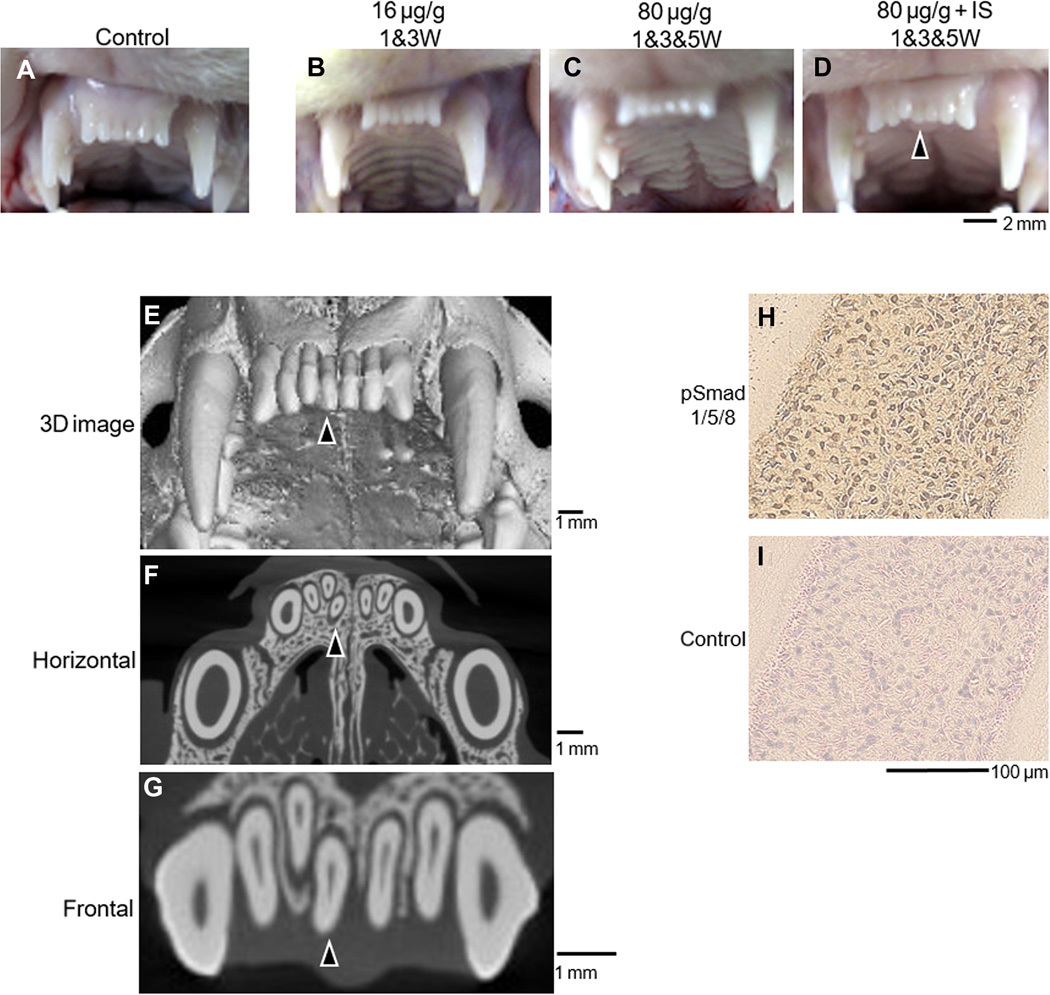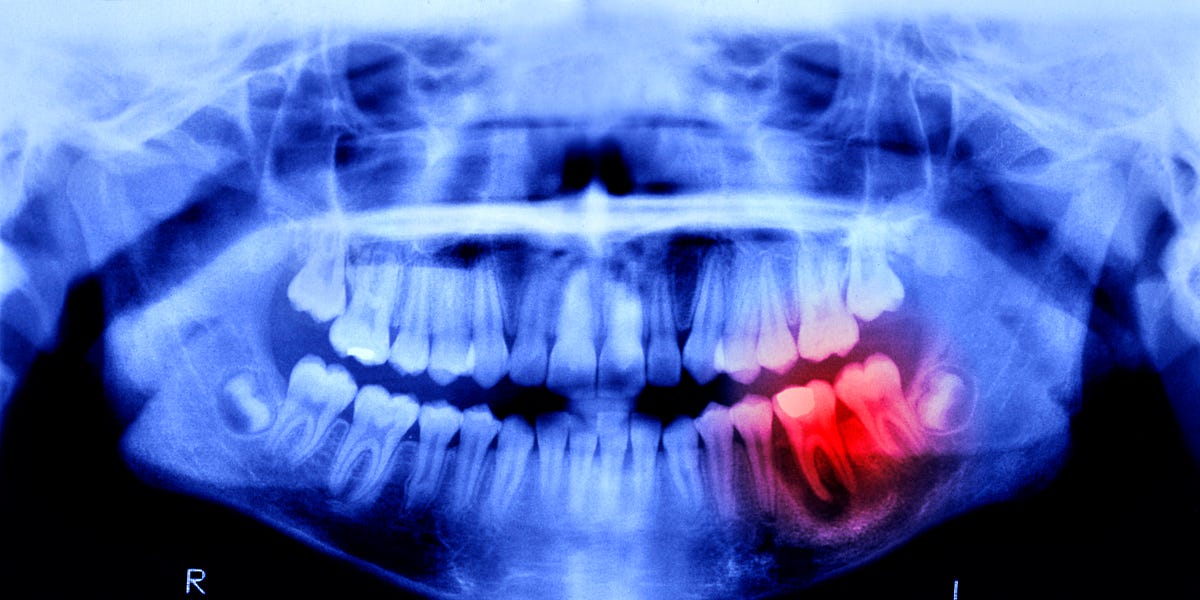Mark my words this is going to be used decoratively like a tattoo or a piercing
Two words, penile implant.
Vagina dentata
too many words :(
Lots of hopium in the article. The base treatment seems to be for 2-7 years old missing teeths.
I mean you can’t just inject some stuff and have a random tooth grow out.
I’m 36, so you telling me theres a chance I won’t need dentures when I’m in my 70s?
There’s a crazy lot of stuff that will happen in the upcoming decades. IMO.
deleted by creator
I mean tbh modern dentures are dope if you can afford them
modern [insert thing here] is dope if you can afford it.
Based on the studies I’ve seen, that’s exactly what the researchers are hoping for in the long run
Crazy if it works, but the whole biotech field is boiling right now so who knows?
Boiling?
There is a lot of research and interesting things going on right now, from those latest vaccines that are amazing (and not only for vaccinating), CRISPR, longevity research etc etc etc.
It really feels like we went from “trying out 100.000 random things to see if we can somewhat cure something” to using a more direct approach like targeted interventions and designed drugs & molecules.
Well, that’s not actually the first thing they’re testing:
Now, scientists will see just how similar, because humans will soon undergo a similar trial in September of this year. Lasting 11 months, this study will focus on 30 males between the ages of 30 and 64—each missing at least one tooth. The drug will be administered intravenously to prove its effectiveness and safety, and luckily, no side effects have been reported in previous animal studies.
I’m guessing the idea is to catch teeth that could have developed but never did (hey, I’m missing one that way). Otherwise I’m not sure how they’d control which type and how many show up.
Annoyingly there’s no English language link, so it’s hard to say. I’m not even clear on what they did with the ferrets.
Annoyingly there’s no English language link, so it’s hard to say. I’m not even clear on what they did with the ferrets.
Here you go! https://www.science.org/doi/10.1126/sciadv.abf1798
A ferret got an extra tooth

Ah, thanks!
So the meat of this is actually the mouse models, looks like. Strains of mice with genetically missing teeth got them back.
They basically just juiced normal ferrets to see what would happen, and they grew an extra incisor as you can see in the images posted. I’m guessing developing genetically toothless ferrets wasn’t in the scope of their funding. You can get all kinds of weird lab mice “off the shelf”, though.
One question. How much? Unless its very very affordable i.e. cheaper than implants then it’s just another dental resource I can’t afford. In the US insurance companies will label this as cosmetic and thus only for the wealthy
Awesome science though, just hope some of the less fortunate can actually afford it
I think some of this old article got lost in translation. I had seen a similar older article that had this only causing kids with a genetic defect that prevented their 2nd set of teeth from growing out (this posted article said the trial is being done on 2 to 7 year olds), so I’m doubtful it will do anything for adults that lost adult teeth. I think the article I had previously read said as much.
this posted article said the trial is being done on 2 to 7 year olds
Huh?
Now, scientists will see just how similar, because humans will soon undergo a similar trial in September of this year. Lasting 11 months, this study will focus on 30 males between the ages of 30 and 64—each missing at least one tooth.
But are they missing a tooth due to a genetic issue? Or are they missing a tooth from losing an adult tooth, already?
Need a better source.
Need a better source.
Here’s some of the earlier research on mice and ferrets: https://www.science.org/doi/10.1126/sciadv.abf1798
As everywhere on lemmy it will be “oh no, only the rich will get it”.
Yes, as with every new treatment. But also, once it’s ironed out, it will become available to everyone.
No, communism won’t solve the scarcity problem of a newly developed treatment, although it would imply a different distribution mechanism. And if socialist/communist society isn’t a perfect utopia you somehow imagine we could transition to tomorrow, you’d see a distribution mechanism for those novel treatments to be unfair in other ways.
So, here’s what we have: money is being invested into novel treatment research, it’s initially only affordable to the rich, then to those who’re willing to sell their house for it, then to those with a private insurance, and then, eventually, to everyone.
It’s not a perfect system, but it’s a system that gets us all better healthcare every year.
So, ask yourself if maybe every one one of your comments always boils down to “I wish we lived in a communist utopia”. Cuz, you know, I’m actually with you, but I don’t see this running in circles being useful. And, for your default country, I also hardly see a way there through a democratic process.
What a stupid take on someone relating their personal experience.
- While bones can regrow themselves when they break, teeth aren’t so lucky, and that leads to millions of people worldwide suffering from some form of edentulism, a.k.a. toothlessness.
- Now, Japanese researchers are moving a promising, tooth-regrowing medicine into human trials—the first patients will be receiving the drug intravenously in September of this year.
- If the trial is successful, the researchers hope the drug will become available for all forms of toothlessness sometime around 2030.
Ok, so how does it work? Does it regrow a single tooth if it’s missing, or do you have to pull them all out, and it regrows the whole set?
It’s likely an injection into the jaw. We already have the pathways to grow new teeth, and where. It’s what kicks out milk teeth. It’s likely a case of triggering it.
Worst case, your old teeth fall out.
In the previous comment, the one I replied to, it says the drug is administered intravenously. I thought, like you did, it would be some sort of gel or cream or injection into an old tooth socket or something like that. However, it seems that the drug is administered intravenously and works systemically.
I find this all very fascinating
Yeah, so what if you’re like me and you’ve had a tooth pulled and replaced with an implant? There’s a titanium drywall anchor embedded in my skull with a fake tooth bolted to it. What happens if I take this drug? Does it push the bone graft out?
Yeah, I’m in the same boat with a couple of teeth. I really wanna know what would happen in that case, lol.
Perhaps they would have to remove any dental implants before proceeding with the therapy.
If you accidentaly mix up your antibiotics ear drips with your tooth growing medicide, are you going to get ear teeth?
Yes, helping people is fine and all but I think we can all agree the real question is can we grow extra teeth and where?
I can probably hold out but it’s going to be close .
Do they have to be grown in the normal tooth places, or can I grow myself some teeth knuckle dusters?
“oh look, a horn, instructions didn’t say anything about a horn, fuck, what to do now”
as usual i will most likely be dead before that becomes commercially available
I hear this same claim every 5 years think its bullshit
Excellent! More teeth for the teeth cup.
I only skimmed the article but on the surface this seems to be the same Kyoto University study that was being passed around a few months ago which was explicitly not regrowing lost teeth, it’s kick-starting natural growth in people whose teeth never grew in the first place due to congenital issues. I’ll just copy+paste my last comment:
This probably isn’t going to be available to you then, though it is possible it paves the way for a tooth-replacement treatment. This article seems like bad science communication. The video, tweet, and website they link to all state that they’re researching congenital conditions, the inquiry form linked to on the website explicitly states in English they’re not considering people who lost their teeth later in life and specifically calls out articles like this one as misinformation.
We are currently receiving a large number of inquiries that differ from the purpose of this research, which is very troubling.
This research is a study of therapeutic drugs for people who are missing teeth due to congenital (from birth) diseases (diseases, etc.).
This research is not aimed at restoring teeth to people who have lost their teeth due to acquired causes, as some news and social networking sites have reported.Additionally, we are not currently recruiting candidates for clinical trials (adult males).That study inquiry form doesn’t exist any more (probably because it’s a bit late to join) but a similar notice is on their contact page.
Removed by mod
Removed by mod
Removed by mod











